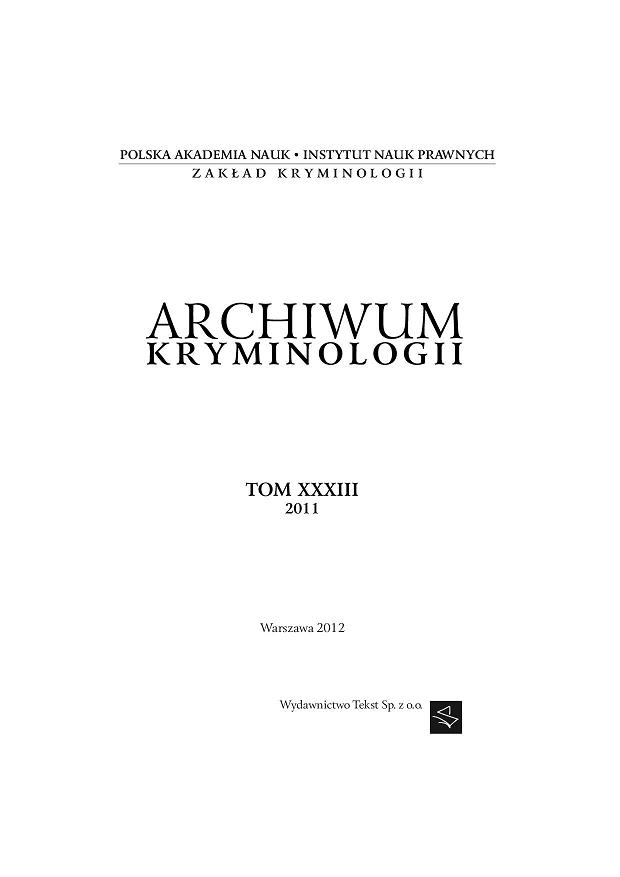Czy w świadomości Polaków terroryzm stanowi zagrożenie dla polskiego społeczeństwa? Wyniki badań własnych
Is terrorism a threat to Polish society? Results of own research.
Author(s): Ewa M. Guzik-MakarukSubject(s): Law, Constitution, Jurisprudence
Published by: Instytut Nauk Prawnych PAN
Keywords: TERRORISM; CITIZEN'S SAFETY; VICTIMIZATION;
Summary/Abstract: The aim of the publication is to discuss an answer to the question if terrorism is a threat to a Polish society. The discussion is based on own research conducted within “Monitoring, identification and prevention of risks to citizens’ safety” research project realized by University in Białystok with cooperation with Military Academy of Technology in Warsaw. The research employed a computer assisted direct questionnaire interview method. Interviews were performed in the autumn of 2008 on a representative group of Polish citizens over 18. 1042 interviews were performed by interviewers from Pentor Research International, an institution chosen because of its high degree of professionalism and the fact it had conducted many simi-lar surveys of this kind. The research has provided answers to the following questions: if terrorism is one of the threats people in Poland are afraid the most, what the social perception of possibility of terrorism risk is, what information there is on the level of fear of potential victimization with a terrorist crime. Moreover, the following information has been obtained: actual level of victimization with terrorist crime, social evaluation of terrorism prevention by the state, and social acceptance of state intervention into privacy of citizens to eliminate risk of terrorism. The method used a rarely employed victimization survey (direct victimization experience) and so-called indirect victimization experience which can be extremely useful in attempts to evaluate so-called “dark number”. Naturally, in case of terrorism the phenomenon is so spectacular it is hard to speak of “dark number” of victims. Still, the questionnaire included 50 different risks and did not exclude terrorism since adult Polish citizens and their families could have been harmed by terrorism while abroad. The study has found that terrorism occurs in social awareness only extremely rarely and is perceived as a remote risk. Merely 2 percent of respondents declared that their greatest fear was terrorism. Terrorist attacks are hardly present in Polish social awareness and they appear only if such possibility is prompted by an interviewer. Women living in the capital of Poland appeared the most numerous group to fear a terrorist attack. Polish society is convinced that terrorism threat is not a real problem. Similarly, it is rarely perceived as a risk to personal security. None of the respondents in the group has experienced a hostage taking, only 1 percent responded that their family member has experienced a hostage taking, terrorist attack or bomb explosion. Social perception of state prevention of terrorism is rather satisfactory. It is worth to note that there is a high level of acceptance of state actions to eliminate the risk of terrorism. Every fourth respondent declared acceptance of state intervention into his privacy in case of terrorism threat.
Journal: Archiwum Kryminologii
- Issue Year: 2011
- Issue No: XXXIII
- Page Range: 227-244
- Page Count: 18
- Language: Polish

